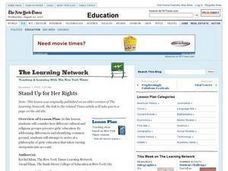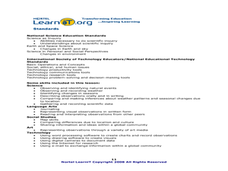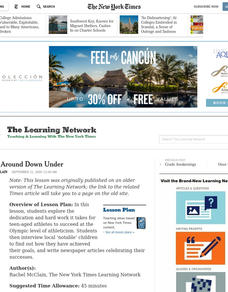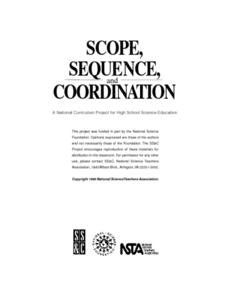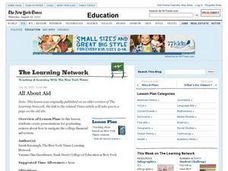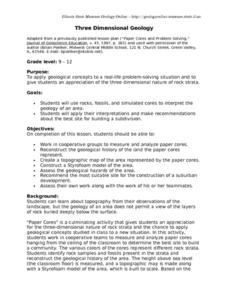Discovery Education
Jets in Flight
This Discovery Education activity provides the information needed to understand the basics of flight. Before taking off, young pilots learn the eight stages of the engineering design process. Small groups then design and build...
Autism Speaks
Tips for working with participants with Autism
Everyday life can be overwhelming for a student with autism spectrum disorder. An informative presentation guides teachers through definitions of common attributes associated with autism, as well as ways to meet sensory needs to...
Houghton Mifflin Harcourt
The Hobbit
From dragons to dwarves, from riddles to rings, the great adventure story of The Hobbit by J.R.R. Tolkien has captivated generations of readers of all ages. An educator's guide explores the novel's literary elements,...
Teaching Ideas
The Victorians Fact Cards
Want to learn some quick facts about Victorian England? Check out a series of fact cards that include information about class structure, education rights, public health, and Queen Victoria herself.
Florida Center for Reading Research
Fluency, Connected Text, Computer-Based Reading
Scholars take to computers or devices to boost reading skills using educational software or websites.
Curated OER
Stand Up For Her Rights
Students consider how different cultural and religious groups perceive girls' education. By addressing differences and identifying common ground, students attempt to arrive at a philosophy of girls' education that takes varying...
Curated OER
Web of Deceit
Check the validity of Internet web sites analyzing the accuracy of the information. Students will use this knowledge to create their own web site about a person of their choosing.
Curated OER
Suitable Schools
Students explore education requirements for different professions, and define the skills and knowledge that adults use in their everyday lives. They define and describe what students, teachers and parents expect from formal schooling.
Curated OER
The Race to Learn
Students explore the history of education and race in the United States. By researching Supreme Court cases dealing with race and education, students examine the ways in which these cases have reflected changing social and cultural norms.
Curated OER
Watch and Learn
Learners explore a particular problem with the development of new television shows and create original reality-based educational programming.
Curated OER
Feature Column: Virtual Field Trips
Students discover ways to stay healthy by utilizing Internet education software. In this computer technology lesson, students investigate Internet programs that simulate a field trip by showing images and video. Students...
Curated OER
Online and Off the Record
Students evaluate how effectively teen Web sites abide by privacy protections of the studenT Online Privacy Protection Act. They write letters to the Webmasters offering recommendations for improving the privacy and appeal of the sites...
The New York Times
Kidding Around Down Under
After reading an article, "From an Alternate to a 'Miracle Kid' in a Flash," youngsters discuss the kind of commitment required for a teenager to become an Olympic athlete. A variety of activities is suggested, and the popular topic...
Curated OER
Newton's Second Law
Three memorable activities build on each other to give physics masters a firm grasp of Newton's Second Law. Pupils play with a lab cart on a flat surface and on an incline to confirm that force is equal to mass times acceleration. In the...
Curated OER
The Human Genotype
Six different chromosome activites introduce biology aces to heredity, chromosomal abnormalities, sex-linked traits, and the human genome. The hands-on activites are fairly simple for the teacher to prepare and will prove to be both...
Curated OER
Qualitative Aspects of Rotational Dynamics
Explanations for six different physics lab activities and five suggested assessments are contained in this resource by the National Science Teachers Association. Any combination can be used to open learners' eyes to rotational motion....
Curated OER
Hey, Teacher, Leave My Kids Alone
What are the differences between homeschooling, traditional schooling, and unschooling? Middle and high schoolers examine the opinions of their peers on these varied types of education. After reading a New York Times article, they...
Curated OER
Settlement Exploration: Then and Now
NASA has crafted an imaginative and memorable series of lessons, "NASA and Jamestown Education Module." This lesson is one of the five components. In it, middle schoolers connect history and science by comparing the settlement of...
Curated OER
All About Aid
Begin this lesson by estimating the cost of a college education and comparing it to actual data. After reading an article, high school seniors discuss the processes of the college loan corporations. They listen to a lecture about how to...
Curated OER
Cyberspace Safari
Middle schoolers go on an information gathering hunt on the Internet to study West African empires. They work in teams; meteorologists, bankers, writers, and archaeologists. They collect data on all sorts of topics related to West...
Curated OER
Active Reading with American History
Explore connections within and between informational texts with this lesson about encyclopedia articles. Middle schoolers write encyclopedia articles focusing on topics in American history. They discuss how to determine credibility...
Curated OER
Three Dimensional Geology
Here is a fine lesson plan on geology designed for high schoolers. Learners use rocks, fossils, and other geological clues to determine the geology of an area. Then, they make recommendations to a fictitious city council about the...
Curated OER
#thankfulteacher @lessonplanet - Join the 30 Days of Gratitude Challenge!
Let your positivity inspire educators across the world with our 30 Days of Gratitude Challenge!
Curated OER
Health Conscious?
What is your attitude on health and illness? By considering their own experiences, students will reflect on and discuss their attitudes toward health and illness while educating each other by researching illnesses in small groups,...







